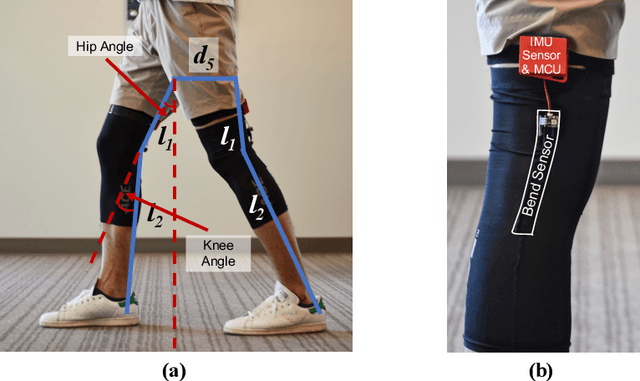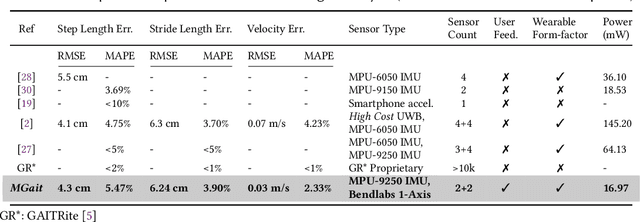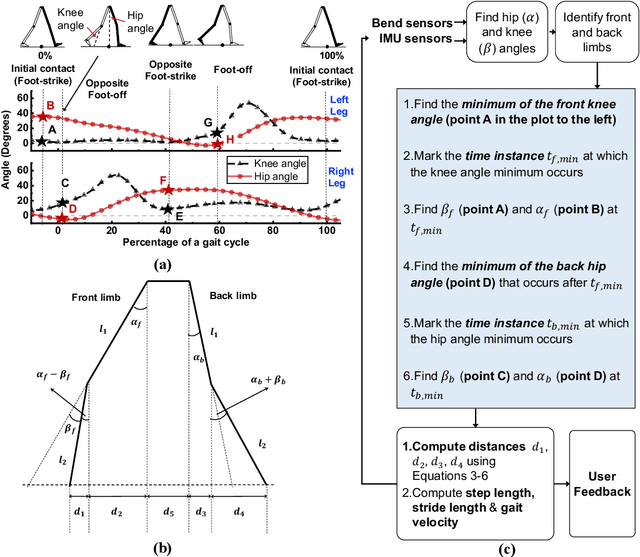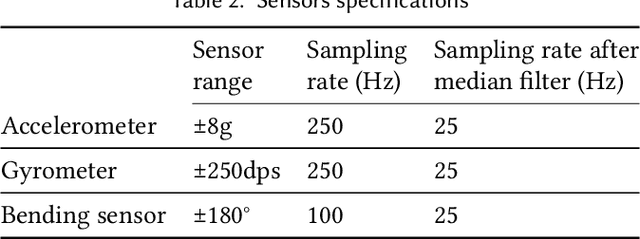MGait: Model-Based Gait Analysis Using Wearable Bend and Inertial Sensors
Paper and Code
Feb 23, 2021



Movement disorders, such as Parkinson's disease, affect more than 10 million people worldwide. Gait analysis is a critical step in the diagnosis and rehabilitation of these disorders. Specifically, step length provides valuable insights into the gait quality and rehabilitation process. However, traditional approaches for estimating step length are not suitable for continuous daily monitoring since they rely on special mats and clinical environments. To address this limitation, we present a novel and practical step-length estimation technique using low-power wearable bend and inertial sensors. Experimental results show that the proposed model estimates step length with 5.49% mean absolute percentage error and provides accurate real-time feedback to the user.
 Add to Chrome
Add to Chrome Add to Firefox
Add to Firefox Add to Edge
Add to Edge